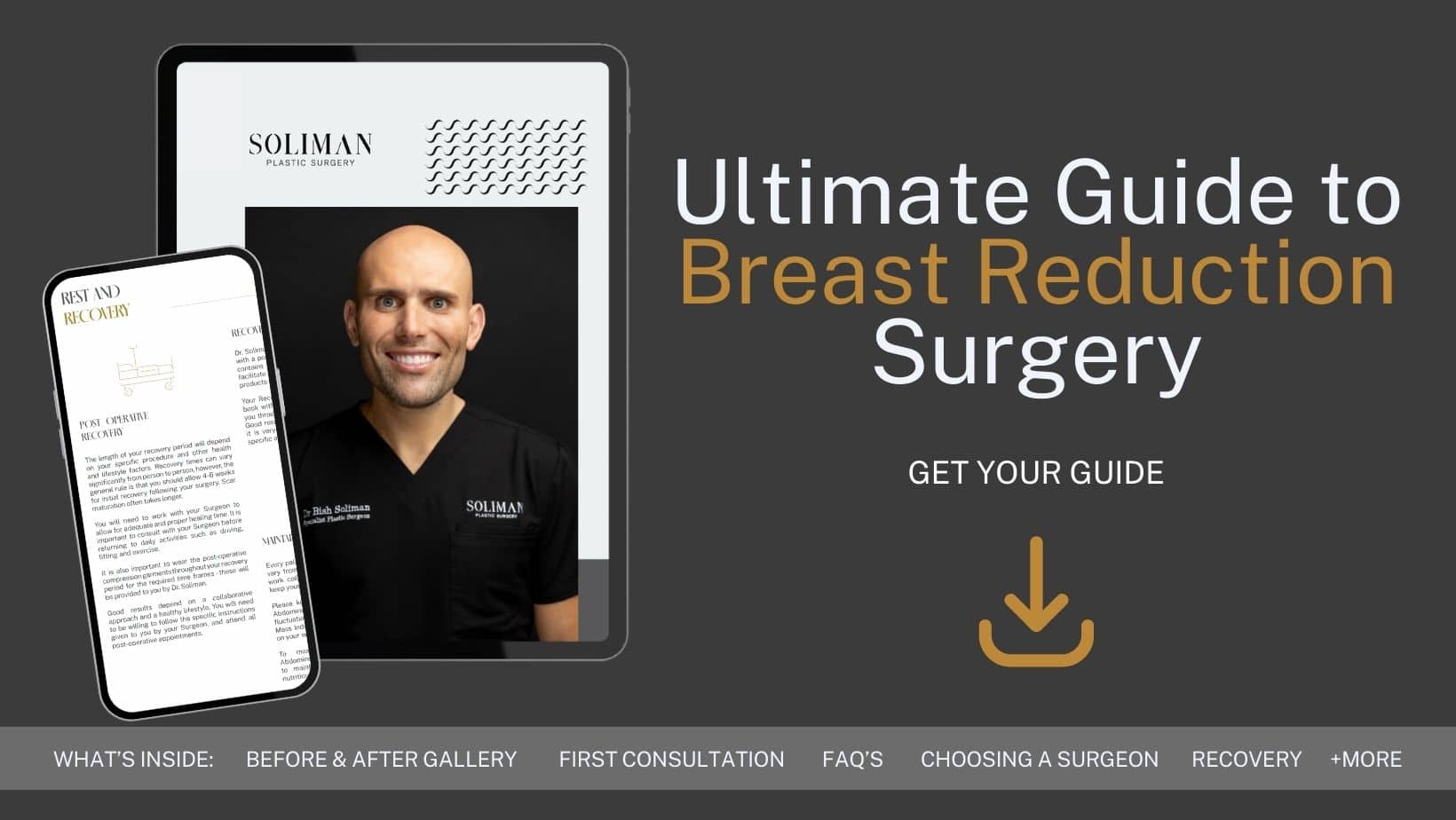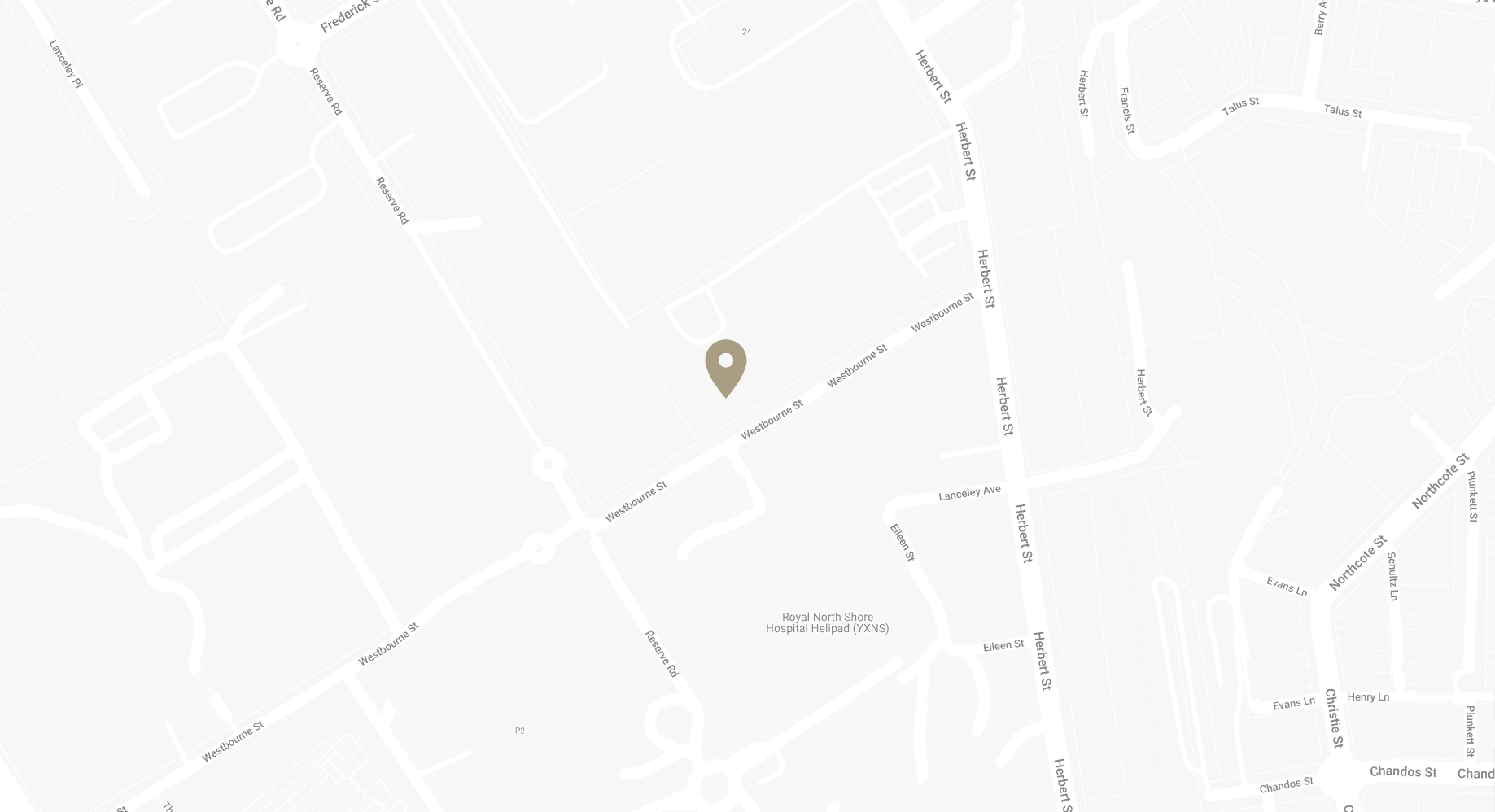Does Medicare Cover Breast Reduction Surgery?
Breast reduction surgery is a procedure performed to alleviate the discomforts associated with overly large breasts. If you are considering breast reduction surgery, you might be interested to find out all the details associated with Medicare for Breast Reduction Surgery.
Dr Bish Soliman, renowned for his expertise and compassionate approach within the field of plastic and reconstructive surgery, is committed to providing clarity and support throughout your journey. This encompasses a transparent discussion about potential expenses and the extent of Medicare’s involvement in financing the procedure.
Through this blog, we aim to shed light on the essential aspects of Medicare coverage for breast reduction surgery in Australia, particularly highlighting the specifics of item numbers 45520 and 45523. These item numbers play a crucial role in the coverage provided and stipulate certain conditions that patients must fulfil to be eligible for Medicare benefits.
Download Dr Bish Soliman Breast Reduction Guide

The Basics of Breast Reduction Surgery
Breast reduction surgery, or reduction mammoplasty, is a procedure designed to remove excess breast fat, glandular tissue, and skin to achieve a breast size more in proportion with your body. It aims to alleviate the discomfort associated with overly large breasts.
The candidates for breast reduction surgery often experience physical symptoms caused by the excessive weight of their breasts. These symptoms can include:
- Neck, shoulder, and back pain that impedes daily activities
- Chronic rash or skin irritation under the breasts
- Deep grooves in the shoulders from bra strap pressure
- Restricted activity due to breast size, affecting lifestyle and comfort
- Nerve pain caused by large breasts
Apart from physical discomfort, some individuals seek breast reduction to correct asymmetry between the breasts.
Benefits of breast reduction surgery:
- Reduced physical discomfort: Alleviating the strain on the back, neck, and shoulders can lead to a more active and healthy lifestyle.
- Improved posture: Lighter breasts can help in correcting one’s posture, with patients often reporting less slouching and back pain.
- More involvement in physical activities: With the burden lifted, many find themselves participating more in sports and fitness routines they previously avoided.
Medicare in Australia and Its Coverage
Navigating the healthcare funding landscape in Australia can be a complex task, particularly when exploring coverage for procedures such as breast reduction surgery. Medicare, the foundation of Australia’s health care system, provides residents with access to a wide range of health services at little or no cost. Understanding the specifics of what Medicare covers, especially in relation to plastic and reconstructive surgery, is crucial for prospective patients considering breast reduction.
What Is Medicare?
Medicare is Australia’s universal healthcare system aiming to provide affordable, accessible, and high-quality medical treatment for all Australian citizens. Funded by taxpayers, it covers many healthcare costs, but it’s important to note that coverage for surgeries, especially elective procedures, has certain limitations and conditions.
How Does Medicare Work with Surgical Procedures?
For surgical procedures, Medicare contributions are typically based on the Medicare Benefits Schedule (MBS), a comprehensive listing of the services the Australian Government considers medically necessary and therefore subsidises. The MBS includes services such as consultations, diagnostic tests, and surgeries, each with a specific item number and predetermined benefit amount.
It’s important to note that while Medicare provides benefits for a comprehensive list of services, it does not cover everything. For instance, cosmetic surgery purely for aesthetic reasons is generally not covered. However, procedures deemed clinically necessary, including some plastic and reconstructive surgeries, may be covered in part.
When Does Medicare Cover Breast Reduction Surgery?
For breast reduction surgeries, Medicare coverage applies under specific conditions. The procedure must be deemed clinically necessary and not purely for aesthetic reasons. This distinction is crucial because Medicare differentiates between cosmetic surgery and reconstructive surgery—the latter often being necessary for health reasons and quality of life.
Medicare will typically cover breast reduction surgery under the following circumstances:
- The patient is experiencing pain or discomfort that interferes with daily life and physical activity.
- There is evidence of skin irritations and infections caused by excessive breast size.
- The patient is suffering from psychological distress due to their breast size.
In these instances, breast reduction surgery is considered a reconstructive procedure rather than a cosmetic one, addressing functional impairments and alleviating symptoms that negatively impact a person’s health and well-being.
Understanding the nuances of Medicare coverage is pivotal in setting realistic expectations for what costs can be recouped.
Breast Reduction and Medicare Coverage
Getting into the specifics of Medicare and its approach to breast reduction surgery, it becomes essential to understand how certain procedures are classified within the system. Medicare utilises specific item numbers in the Medicare Benefits Schedule (MBS) to identify services eligible for a benefit. For breast reduction surgery, item numbers 45520 and 45523 are of particular importance:
- Item 45523: This item number covers breast reduction surgery, also known as reduction mammoplasty, for individuals who have been experiencing persistent pain or discomfort due to macromastia (abnormally large breasts) or gigantomastia (excessive breast enlargement). The coverage isn’t merely for discomfort; the symptoms must be significant enough to interfere with everyday activities or cause physical complications.
- Item 45520: This item pertains to the surgical correction of breast asymmetry in cases where there is a significant discrepancy in size between the two breasts. It’s important to note that this isn’t for minor differences in breast size, which are common. Instead, it’s for pronounced asymmetry that results in psychological distress or physical discomfort.
Additional Costs and Considerations
While navigating Medicare coverage for your breast reduction surgery lays the foundation for understanding the financial aspect of the procedure, it doesn’t encompass the entire cost landscape. There are additional expenses and considerations that prospective patients must be aware of to fully prepare for the journey ahead.
Here are some potential additional costs not covered by Medicare:
- Surgeon’s Fees: Medicare covers only a portion of the total surgeon’s fee. There might be a significant gap between the surgeon’s charges and what Medicare reimburses, which patients are required to pay out-of-pocket.
- Anaesthetist’s Fees: Similar to surgeon’s fees, the costs for the anaesthetic services often exceed the Medicare benefit, which means patients would need to cover the additional charges.
- Hospital Stay and Operating Theatre Costs: While Medicare provides some coverage, there are usually associated costs for hospital rooms and operating theatre usage that exceed Medicare benefits.
- Medication and Medical Supplies: Post-operative medications, dressings, and other medical supplies necessary during the recovery phase may not be covered by Medicare.
- Post-operative Appointments: Although initial follow-up appointments are often included in the surgical fees, any long-term follow-up care or unforeseen post-operative consultations might generate additional costs.
Private health insurance can play a critical role in covering some of the costs not covered by Medicare. Depending on your level of cover, private health insurance might cover a part of the gap in the costs of the hospital stay, operating theatre fees, and even part of the surgeon’s and anaesthetist’s fees.
It is imperative to consult with your insurance provider before scheduling surgery to understand precisely what is covered and what isn’t. Ensure that your policy covers breast reduction surgery and be aware of any waiting periods that may apply. By understanding your policy details, you can avoid unexpected costs.
Considerations for Post-operative Care
The post-operative phase is a crucial part of your surgical journey, and there are costs associated with this phase that you need to anticipate.
- Recovery Garments: Specialised garments may be required during your recovery period to support healing. These are usually not covered by Medicare or private insurance.
- Physiotherapy: Some patients may require professional physiotherapy sessions to aid in their recovery, entailing additional costs.
- Unforeseen Complications: While rare, complications that require further medical intervention or surgery can arise, leading to additional expenses.
FAQs about Medicare for Breast Reduction Surgery
Will Medicare cover additional procedures combined with my breast reduction, such as a breast lift?
- Medicare’s coverage focuses on procedures deemed medically necessary. If a breast lift (mastopexy) is performed purely for cosmetic reasons, it won’t be covered. However, if the surgeon recommends a breast lift in conjunction with a reduction to address functional issues — like pain or restrictions in physical activity — and can provide a strong medical rationale, there’s a possibility Medicare may cover a portion of the combined procedures. It’s crucial to have detailed consultations about this aspect.
How do I determine the appropriate breast size after reduction?
- The decision on your post-operative breast size is a highly personal one and depends on various factors including your body frame, lifestyle, and personal expectations. During your consultations, Dr Bish Soliman will discuss your goals and provide professional insights on what breast size would maintain a natural and proportionate look to your overall body shape.
What is the recovery process like after breast reduction surgery?
- Recovery experiences can vary, but generally, patients are advised to take two to four weeks off work or school to rest. You may experience soreness, swelling, and bruising initially, which gradually improves. Strenuous activity and heavy lifting should be avoided for at least six weeks. Dr Soliman will provide detailed post-operative care instructions, including how to care for incisions, types of suitable physical activity during recovery, and signs of potential complications. Follow-up appointments will be scheduled to monitor your healing process. It’s important to note that full recovery can take several months.
Further Reading about Breast Reduction Surgery with Dr Bish Soliman
- Read Dr Soliman’s Breast Reduction Surgery Page
- Read Dr Soliman’s Blog about Who Are the Best Breast Reduction Surgeons in the World?
- Read Dr Soliman’s Blog about What Is Scarless Breast Reduction
- Read Dr Soliman’s Blog about Scars after Breast Reduction for Best Results
- Read Dr Soliman’s Blog about Recovery after Breast Reduction
- Read Dr Bish Soliman’s Blog about How to Prepare for Breast Reduction
Medical References about Breast Reduction Surgery
- Breast reduction surgery – Mayo Clinic
- Breast Reduction – ASPS
- Breast Reduction Surgery: Purpose, Procedure, Risks – WebMD



